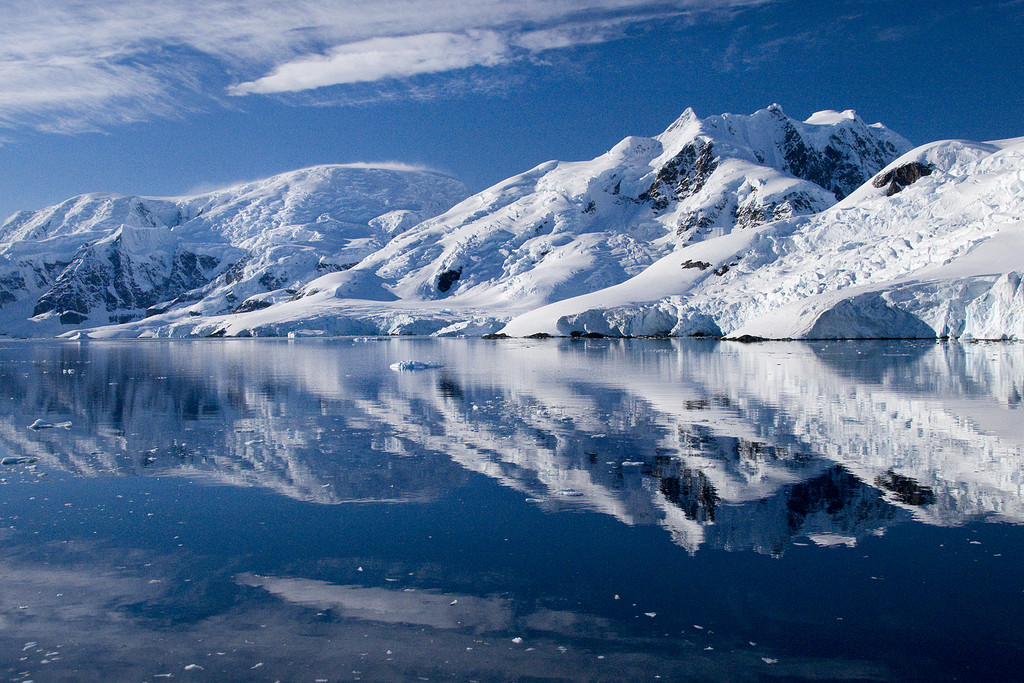The final countdown! University of Northampton lecturer makes last-minute preparations for Antarctic research expedition
Date 3.03.2016

A researcher from the University of Northampton is about to travel to the Antarctic to explore how people from different backgrounds respond to extreme conditions such as sub-zero temperatures and extreme isolation.
With just a week left before he sets sail for Antarctica, Dr Nathan Smith is making the final preparations for his extreme research trip. Dr Smith, a Lecturer in Sports Psychology, will be embarking on the ‘2041 International Antarctic Expedition (IAE)’, which will set sail from the Argentinian port of Ushuaia – a town nicknamed ‘the end of the world’. The 24 expedition members will spend more than two weeks together, in freezing temperatures as low as -25C.
The expedition will feature an international cohort of individuals who are all participating in the ‘Leadership on the Edge’ programme, a scheme devised by world-renowned adventurer Robert Swan. The diverse group come from all around the world, including Canada, UK, USA, India and the Philippines, and include a 23-year-old from India and an 18-year-old environmentalist from the Isle of Wight. As part of the expedition, Dr Smith will be conducting research into how the other expedition members cope with the extreme cold and isolation of the frozen south.
Dr Smith explained: “It is now just a week until I join the 2041 International Antarctic Expedition. All of my kit has been purchased and is slowly being packed away ready for the 30-hour journey to Ushuaia in Argentina on 9 March. As we sail across the Drake Passage, it will give me chance to test my sea legs before getting stuck into the Leadership on the Edge activities that are central to this expedition trip. The expedition team have now all been introduced and there is a wonderful mix of people. From a psychological viewpoint, the opportunity to study a diverse group in an extreme and unusual environment is not to be missed and will offer fantastic data on personality, coping, group functioning and responses to the expedition experience.
“All in all, this is set to be a wonderful journey and should offer scope for academic discovery, as well as a heavy dose of self-discovery. On the run up to departure I will be recording some video diaries discussing different parts of the journey, some of my inspirations and the logistics of conducting research in the Antarctic.”
Over the past couple of weeks, Dr Smith has undertaken a variety of public engagement activities. He explained: “Children from years 1 and 2 at St Andrew’s Primary School in Kettering have kindly given me a penguin to take along on the trip and are looking forward to hearing about Ponting’s adventures when he gets back from the cold South. Ponting was named after Herbert Ponting, the photographer on Robert Falcon Scott’s Terra Nova expedition.”
The Leadership on the Edge programme aims to educate future world leaders on the benefits of protecting the natural world, and the importance of developing resilient people and communities. Knowing how people from diverse backgrounds respond to extreme, isolated and confined situations is crucial for safe and successful journeys into extreme environments. Such information will become increasingly important as the opportunity to travel to remote parts of the Earth – and beyond – becomes more accessible to more people.
The three main scientific objectives of the expedition are: to examine how exposure to extreme conditions relates to post-expedition adjustment to ‘normal’ life; to explore the role of personality and personal values when coping with stress in extreme, isolated and confined conditions; and to observe group cohesion and performance in a culturally-diverse expedition group.
Dr Smith is also bidding for research funding for the trip and seeking sponsorship from local businesses and individuals. To sponsor Nathan, visit his Indiegogo page. For further information contact: Nathan.smith@northampton.ac.uk. Nathan’s video blogs are online, on his blog.
Iceberg image courtesy of the 2041 International Antarctic Expedition.